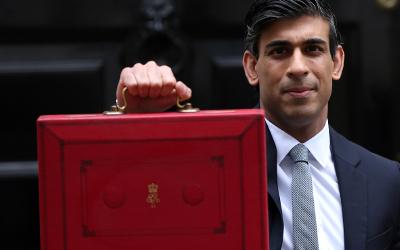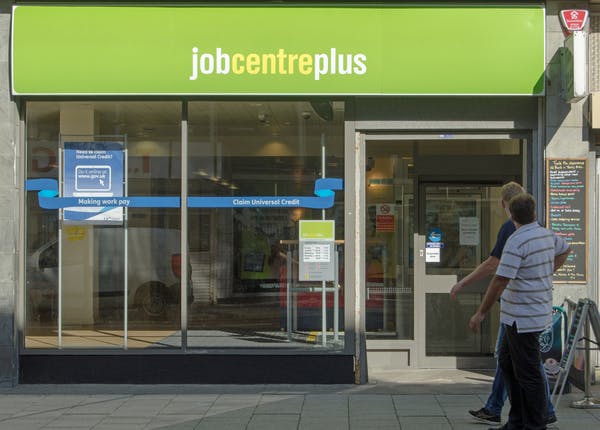Autumn budget 2021: experts react

UK chancellor Rishi Sunak has unveiled his autumn budget as the nation wrestles with recovery at the tail end of the COVID pandemic, supply shortages and a mounting crisis in the cost of living. Our panel of experts react to what has been announced.
Employment
Pay rises for the public sector aren’t guaranteed.
Rishi Sunak has lifted the pay freeze that was imposed on public sector workers a year ago. At the time, he had argued he could not justify an across-the-board increase when many private sector workers had seen their pay and hours cut in the crisis. Now he has reiterated that the pay freeze helped in ensuring that the gap between average public and private-sector wages did not widen further during the pandemic.
However, the chancellor failed to state how much of an increase public-sector workers will receive, or to allow independent pay-review bodies to make recommendations. This effectively means there is no guarantee of a pay raise.
As a mark of appreciation for the hard work and challenges faced by workers during the pandemic, a clear indication of how much pay increase was expected – especially in the face of the rising cost of living. The chancellor continually ignores the decline in public-sector pay following a decade of austerity.
That said, the big question is, was the pay freeze necessary when the government furlough scheme was in place for workers in the private sector? Arguably the answer is yes when you reflect that public sector jobs are not only better paid but tend to be less precarious.
The sectors that were most affected by the pandemic included hospitality, arts and recreation, and construction, which all tend to recruit workers on zero-hour contracts, which the government has failed to ban. Companies firing and rehiring workers has been widespread during the pandemic, with almost one in ten workers told to re-apply for their jobs on worse terms and conditions.
Ernestine Gheyoh Ndzi, Senior Lecturer in Law, York St John University
Environment
A conspicuous lack of anything to fill the gaps in the net zero plans.
What chancellors don’t say is always as interesting as what they do. This budget was a case in point, and the biggest absence of all was surely climate change. In an otherwise comprehensive survey of current economic conditions, the largest challenge of all – the one that should be driving huge swathes of both public and private investment – barely got a mention.
Yes, the chancellor referred (almost in passing) to COP26, and to green technology innovation. But of the government’s overall net zero strategy, which was announced a few days earlier, there was nothing.
Why does this matter? Two reasons. One is that the climate spending announced in the net zero strategy is not enough. As many commentators pointed out, the strategy makes grand promises in areas such as replacing domestic gas boilers by heat pumps, and spurring the use of hydrogen, but does not devote anything like the sums required to make them happen.
Since the strategy has an overly optimistic view of how much the private sector will fill the gap, it would have been good to hear the chancellor explain more how and why he expects that to happen, and perhaps to add some green spending to his extensive set of announcements. He didn’t. What he did instead was announce an entirely anti-green reduction in air passenger duty on domestic flights.
Second, it matters because the chancellor is responsible for managing the UK economy. If he does not think that climate change is one of the major issues which he and the Treasury must address, it bodes very badly for the more detailed policy decisions which are coming down the line. It should hardly need saying that tackling climate change is primarily an economic problem. That the chancellor doesn’t seem to think so is alarming.
Michael Jacobs, Professor of Political Economy, University of Sheffield
Inequality
The average household is likely to be worse off, while business wins.
In terms of tax rates, the big winners in this pro-business budget are financial institutions, which will see a drop in their corporation-tax surcharge from 8% to 3% (albeit their overall corporation tax rate will still rise by a percentage point). And many hotels, restaurants and pubs will benefit from lower business rates and lower alcohol duty for drinks like beer, wine and cider.
The increase in the minimum wage is one of the most welcome announcements. Despite the modest increase of just under 7%, from £8.91 to £9.50, this is more generous than in previous years and certainly justified given current inflation at over 3% and rising energy prices. Lifting the pay freeze for public-sector workers is also crucial.
Two other measures are worth a mention in terms of social investment: the promise to spend £1.8 billion to develop brownfield land for housing and the 48% rise in skills investment. But if we add the new higher rate of national insurance for employees and the self-employed announced in September, the average household will almost certainly be worse off than before.
Despina Alexiadou, Senior Lecturer at the School of Government and Public Policy, University of Strathclyde

The minimum wage is going up 7%
BasPhoto
Personal finance
A limited universal credit boost but no help with bills.
The biggest surprise is the lack of help for households with the cost of energy bills, for which the price cap rose 12% from October 1, with a further 30% rise forecast for April 2022. Speculation that VAT on energy might be cut or access to the winter fuel payment expanded did not materialise.
The government is cutting the reduction in benefits for those in work from 63p to 55p in every pound earned over and above the monthly “work allowance” threshold, which is £293 for those who receive housing support and now rising to £335. This means that claimants in work will recoup some of the loss to their benefits from the minimum wage rising 7% to £9.50 an hour for over-23s in April 2022.
But note that the work allowance applies only to those who have children or limited capability for work. What’s more, these changes do not help the 60% of universal credit claimants who are not in work.
Alcohol duties are to be simplified, including linking the tax directly to alcoholic strength, with reductions for draught beers, many craft ciders and sparkling wines. The 9 million passengers who take internal flights might raise a glass with a reduction in their air passenger duty, while long-haul passengers will pay more. A continuation of the freeze on fuel duty will be welcome news for motorists.
Nevertheless, 2022 looks tough. As well as the pressure from energy bills, both the personal income tax allowance and income tax bands are now frozen, and national insurance payments are rising 1.25%. At the same time, annual inflation is set to reach 4.4%, according to the Office for Budget Responsibility.
Jonquil Lowe, Senior Lecturer in Economics and Personal Finance, The Open University
Taxation
A fuel duty freeze won’t counter the rising tax burden
The budget exuded a mood of cautious optimism, and this was evident in a series of low-key tax announcements. The chancellor confirmed the proposed rise in corporation tax announced in March, currently planned to increase from 19% to 25% in 2023.
Reforms to the tax reliefs that companies receive for research and development costs (expanded to cover cloud-based infrastructure but no longer allowable for overseas spending) appear rational, but add to the multitude of short-term temporary changes on such allowances. This makes tax planning for companies more difficult.
While the continued freezing of fuel duty (along with reforms in alcohol duty) will offer some respite for households, overall these measures will raise the tax burden to 36.2% of GDP (in 2026-27), its highest in almost 70 years. The feeling is that the government is banking on being able to offer future tax cuts in the face of likely increases in living costs.
Gavin Midgley, Senior Teaching Fellow in Accounting, University of Southampton
Business
Tax cuts provide scant comfort (except for pubs and airlines).
The announcement that reform of business rates is being delayed will not be welcome. However, the cancellation of the planned increase in “the multiplier” that is used to calculate business rates will mean an effective tax cut for business worth £4.6 billion over the next five years.
Additionally, the 50% discount for most retail and hospitality businesses for one year will come as some comfort to high-street business suffering the impact of supply-side problems in getting labour. Critically, plant and machinery used on-site for renewable energy being exempt from business rates until 2035 is a clear nod to the green agenda.
Nonetheless, significant issues still confront businesses trying to operate successfully in a post-EU “global” environment. As the Office for Budget Responsibility stresses, Brexit, as well as magnifying the impact of global supply-chain disruptions for the UK, will lead to a drop in trade with the EU of 15% compared to remaining in the bloc, which will reduce productivity by 4%.
Inflation is going to be around for many months ahead and could become endemic. This will depress demand and, of course, put pressure on employers to raise wages to maintain employees’ purchasing power. Overall, this budget will have provided scant comfort for business.
Steven McCabe, Associate Professor, Institute for Design, Economic Acceleration & Sustainability, Birmingham City University

Alcohol duties are heading lower for many drinks
Cheers Group
The teetotal chancellor announced a rather smart and sensible set of alcohol duty reforms tidying up a messy system, basing tax on the strength of drinks and also offering support to UK hospitality, pubs and drinks producers.
The announcement had an immediate positive impact on pub stock price but also showed Sunak’s appetite to deliver broader tax reform. Unfortunately, equivalent broad reforms of business rates have been delayed, which will be disappointing for those that have to live with them.
Two of the government’s biggest challenges are “levelling up” and tackling climate change. Sometimes these two things collide head on – and that occurred in this budget. Connecting the UK is seen as vital to levelling up and so the chancellor announced an air passenger duty cut for domestic flights.
But such a cut goes against the commitment to net zero greenhouse gas emissions by 2050 and travelling in a more environmentally sustainable way. At the same time, the decisions about funding a Northern Powerhouse Rail network and part of HS2 were kicked into the kerb.
Edward Thomas Jones, Lecturer in Economics, Bangor University
Healthcare
The short-term funding rise is welcome but there are greater problems ahead.
Responding to the budget is doubly difficult this year. We need, as usual, to disentangle prior from new commitments whilst acknowledging that National Health Service spending has been boosted by the pandemic. As more goes into the “core” with one hand, will the COVID “dividend” be retracted with the other?
With non-COVID NHS funding at around £150 billion a year, the extra £5.9 billion promised by the chancellor to target backlogs is an increase of around 4%, though only in cash terms. But is this temporary or permanent? The recent report by the LSE-Lancet Commission on the Future of the NHS said that such a rise was required for the foreseeable future.
Another big issue is recruitment and retention. Deserved though it may be, funding increases could therefore be gobbled up in enhanced pay, with productivity stagnating. With the £5.9 billion looking additional to that promised from the Health and Social Care Levy in September, there may be a way forward, even if funded by regressively taxing those with less ability to pay through the increase in national insurance.

The NHS is struggling for funding despite large increases.
EPA
These increases will be welcome in the NHS in the short-run, but not necessarily enough in the longer-term and, relatedly, not enough for social care either. Ongoing NHS challenges stem in large part from delayed discharges. According to the LSE-Lancet Commission, the key to freeing up NHS space is to invest similarly in social care capacity.
What’s more, greater emphasis on preventing illnesses is required to release pressure on services in the first place. It’s therefore welcome that the government is focusing on support and advice for parents of young children through the new “Family Hubs”, although the policy was originally announced 18 months ago and is nowhere near the level of the earlier network of previously dismantled Sure Start centres.
Without addressing these fundamental issues, the wealthier will gravitate towards the private sector. Total spend on health and care will appear to be the same in aggregate, but access will become more fractured and unequal than ever, stoking up greater health (and spending) problems ahead.
Cam Donaldson, Yunus Chair & Distinguished Professor of Health Economics, Glasgow Caledonian University
Housing
Sunak has rightly avoided stoking the market.
When COVID-19 hit our economies, most bankers, investors and analysts thought real estate prices would fall, repeating the 20% drop in the 2008 financial crisis. Banks started to demand much higher deposits to grant a mortgage and reduced their lending to homebuyers. This threatened to further reduce buyers and so worsen the expected fall in prices, acting like a self-fulfilling prophecy.
The government tried to prevent such a fall by offering stamp duty relief, saving prospective buyers up to £15,000 in taxes upon completion of their purchase. At the same time, the furlough scheme made sure that most people could still count on their jobs.
Banks quickly reversed their mortgage deposit policies and were (a little too) happy to offer bigger loans on lower deposits. In addition, vaccines proved surprisingly effective and the scarring of the economy ended up less than anyone expected.
Instead of falling, now houses prices started rising – fast. The average price of a property rose to over 15% higher than at the beginning of the pandemic. In this context, Sunak has rightly avoided any action that would push the market even higher. The aim now is to avoid bubble territory and protect homeowners from taking bigger loans that they may not be able to repay if mortgage interest rates rise closer to the 5%-6% of the pre-2008 era.
On the supply side of the housing equation, the UK government’s pledge of £11.5 billion towards 180,000 affordable homes is a welcome step but it’s very far from sufficient. This sum – which was first announced in September 2020 and includes £2 billion of funds earmarked by Theresa May – will not produce nearly enough homes or fast enough to address the needs of the social renting sector.
Alexander Tziamalis, Senior Lecturer in Economics, Sheffield Hallam University
Public finances
Balancing the books with economic growth won’t be straightforward.
This budget puts a great emphasis on investment, with money going into infrastructure, innovation and R&D. This is in line with the “golden rule” in public finance that you borrow in normal times to support investment only, leaving day-to-day expenditure to be funded by higher taxes. The idea is that such investments will ultimately benefit businesses and the wider economy, in terms of better infrastructure, innovation and more skilled workforce.
Yet Sunak’s vision of an “age of optimism”, in which all this investment helps to turn the UK into a high-wage, high-productivity economy, is not going to be straightforward to achieve with inflation set to hit 4% in 2022. As the chancellor clearly indicated, this is calling for the Bank of England to step in with higher interest rates, which might threaten the forecasted growth of the UK economy.
Together with the further challenges and frictions to the UK economy created by Brexit, this could weaken tax revenues and leave the chancellor will less room for investment than he is hoping for. In the face of this not-so-certain future, it would have made sense to ask for great sacrifices from those with more ability to pay.
Gabriella Legrenzi, Senior Lecturer in Economics, Keele University
Levelling up
Town and city grants won’t compensate for people’s falling spending power.
The big announcement was £7 billion for urban transport, although only around £1.5 billion was new funding. This is targeted at the big mayoral combined authorities, especially Greater Manchester, but smaller towns and cities will receive little if any new money.
Many of these places have long been saddled with slow and unreliable bus and rail links, which are not well integrated. The transport divides between the big cities and provincial towns are likely to widen, with consequences for economic growth.
The chancellor announced the first tranche of grants (£1.7 billion) from the new levelling up fund. Over 100 towns and cities have made successful bids for local projects, going some way to compensate lost EU structural funding.
Several other announcements appear to partially reverse the cuts to public services of previous years, such as returning per-pupil education spending to 2010 levels and replacing some closed Sure Start advice centres with so-called Family Hubs. There was also some new funding (£1.6 billion) for addressing the country’s skills gaps, largely targeted at further education.

Stoke on Trent is among the places hardest hit by the end of the universal credit uplift.
diamond geezer, CC BY
The backdrop is the removal of the £20 weekly “uplift” in universal credit, which affected around 4.4 million households and disproportionately hit households in poorer regions. For example, in Stoke on Trent, one of the UK’s most deprived cities, the cut is expected to affect around 30,000 residents, removing over £31 million a year of spending from the local economy.
The rise in the minimum wage and the announced reduction in taper relief on universal credit is unlikely to compensate as rises in tax, national insurance and energy prices eat into people’s budgets.
Levelling up is an enormous challenge. The UK’s regional inequalities are much wider than in other advanced economies, and go back over 150 years. Addressing them requires strong political will, local leadership and substantial funding over several decades. However, Germany’s success with its former communist regions in the east suggests it can be done.
But is the UK prepared to match this ambition? While we await the long anticipated levelling up white paper, this budget suggests the government is only prepared to offer crumbs.
Phil Tomlinson, Full Professor in Industrial Strategy, University of Bath
The view from Europe
Sunak focused on the “freedoms” of Brexit but ignored the downsides – and the environment.
Rishi Sunak mentioned the devastating effects of the COVID-19 pandemic on the UK and world economy — over and over again. He did not reference Brexit in explaining the challenging months ahead, instead blaming global supply chains struggling to keep up with demand, and the wholesale prices of oil, gas, and energy more than doubling during the last year.
Yet while the impact of COVID has made it difficult to compare economic data, there is no denying that the UK economy, particularly trade with the rest of Europe, has been negatively affected by Brexit.
Notably, there were no friendly statements about the EU. Instead, the chancellor pointed out that several of his tax changes, such as alcohol duties, were possible now that the UK had “freedom” from the bloc.

Aberdeen airport is one of the regional outposts set to benefit from the cut in air passenger duty.
NATS, CC BY
The chancellor clearly displayed his lack of interest in the environment and climate change. In his proclamation of an “infrastructure revolution”, Sunak did not mention the green transition. There were certainly opportunities to do so, for example when he promised £46 billion for railways.
Instead, he bragged about spending £21 billion on roads. And duties on UK flights are being cut in half, which he hopes this cut will lead to more flights within the UK and more job at regional airports. Never mind that more flights will mean higher carbon emissions.
Sunak justified a new tax on long-haul international flights with the argument that long-distance flights are worse for the climate—again a disingenuous justification in the context of his speech. He proudly cancelled the plan to increase fuel duty, something he justified as a measure to support drivers and families.
While the resulting savings in petrol expenses will certainly be welcomed by workers who have long commutes, the environment will suffer. The chancellor is trading short-term political gain for long-term environmental damage.
Karl Schmedders, Professor of Finance, International Institute for Management Development (Switzerland)
Ernestine Gheyoh Ndzi, Senior Lecturer at York Business School, York St John University; Alexander Tziamalis, Senior Lecturer in Economics, Sheffield Hallam University; Cam Donaldson, Yunus Chair and Pro Vice Chancellor Research, Glasgow Caledonian University; Despina Alexiadou, Chancellor’s Fellow and Senior Lecturer at the School of Government and Public Policy, University of Strathclyde ; Edward Thomas Jones, Lecturer in Economics, Bangor University; Gabriella Legrenzi, Senior Lecturer in Economics, Keele University; Gavin Midgley, Senior Teaching Fellow in Accounting, University of Southampton; Jonquil Lowe, Senior Lecturer in Economics and Personal Finance, The Open University; Karl Schmedders, Professor of Finance, International Institute for Management Development (IMD); Michael Jacobs, Professorial Fellow, Sheffield Political Economy Research Institute (SPERI), University of Sheffield; Phil Tomlinson, Full Professor in Industrial Strategy Deputy Director Centre for Governance, Regulation and Industrial Strategy (CGR&IS), University of Bath, and Steven McCabe, Associate Professor, Institute for Design, Economic Acceleration & Sustainability (IDEAS), Birmingham City University
This article is republished from The Conversation under a Creative Commons license. Read the original article.
Contact our news team
For all out of hours enquiries, please telephone +44 (0)7901 515891
Contact detailsNews & articles

Grant recipients announced for the 2025 Open Business Creators Fund for Women in Business
The businesses selected to receive funding from the Open Business Creators Fund for Women in Business, (delivered by The Open University and sponsored by NatWest) have been announced.